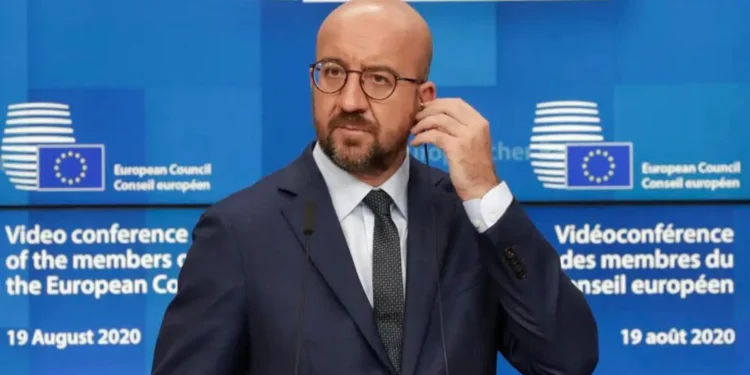Brussels (Brussels Morning) – European Council president Charles Michel assures EU’s support for Malta amidst concerns over a new shipping tax. He emphasizes the broader context of EU solidarity and addresses rule of law issues.
European Council president Charles Michel has expressed that any impact on Malta from a new EU shipping tax should be noticed in the context of European Union money pumped into the nation since it joined the bloc. Michel was responding to queries from Journalists during an event carried to mark 20 years since the EU’s largest growth in 2004. That year, 10 new nations joined the Union, including Malta.
How Does the EU Address Concerns of Smaller Nations?
According to the Malta Times, He was asked for assurances the EU didn’t favour large countries while forgetting smaller countries like Malta, Michel emphasised the European Council was interested in “taking care of all states with the same level of respect”.
How Does the EU Support Malta Amid New Shipping Tax?
In January, the EU raised a new EU environmental tax on shipping that a recent European Parliament report stated had only served to divert cargo ships to more affordable non-EU ports, a danger the Malta Freeport warned about in advance.
According to Michel, “this latest measure should be seen in a broader context. You mention one specific element for Malta – the tax on shipping. But we have to take into account the global picture and all the solidarity shown by the EU towards Malta in terms of economic support, development and infrastructure.”
What’s President Michel’s View on the Rule of Law?
Moreover, Journalists questioned him regarding multiple countries blamed of flagrant abuses of the rule of law, including Bulgaria, Romania and Malta – which has featured in several European Parliament resolutions on the subject in the years following the murder of journalist Daphne Caruana Galizia – can the EU impose rule of law on member states?
Michel responded, “Yes, we are determined… for the European Council, it’s a condition. Rule of law is the foundation, checks and balances are fundamental, democratic values and human dignity are who we are.”
“But, having said that, we need to be very clear and make sure we show there are normal standards when we assess the rule of law question. The rule of law is something that should be seen – and this makes the debate sometimes difficult – in a broader context.” Michel emphasised that “not only one measure” should be used to determine if a country is democratic, arguing it was also necessary to examine the freedom of expression and the press and the autonomy of the judiciary.
Is EU Enlargement a Geopolitical Strategy?
Furthermore, Describing further scheduled enlargement of the EU as a “geopolitical strategy” and “responding to the call of history”, Michel conveyed it was against a backdrop of “geopolitical chaos” pushed by the war in Ukraine and in response to it. But he expressed that the EU’s attitude to future new members had not always been seen as reliable, accepting the union had “procrastinated a lot and presumably not given a clear sign we were determined to engage with them”.
“It was and still is difficult for them to be certain we are credible when making commitments”, he stated.
How Does President Michel Combat Populism?
On the question regarding populism, The European Council president highlighted it was necessary to “tell the truths to the people” in the face of populism and “avoid supposing there would be some taboos about which we don’t talk in the democratic conversation”.
Turning to economic matters, Michel stated around €300 billion worth of European savings were “fleeing” to the US every year, putting the Americans in standing to “buy promising start-ups and companies embarked on European soil. This, he said, was “stupid, not acceptable” and required action.




